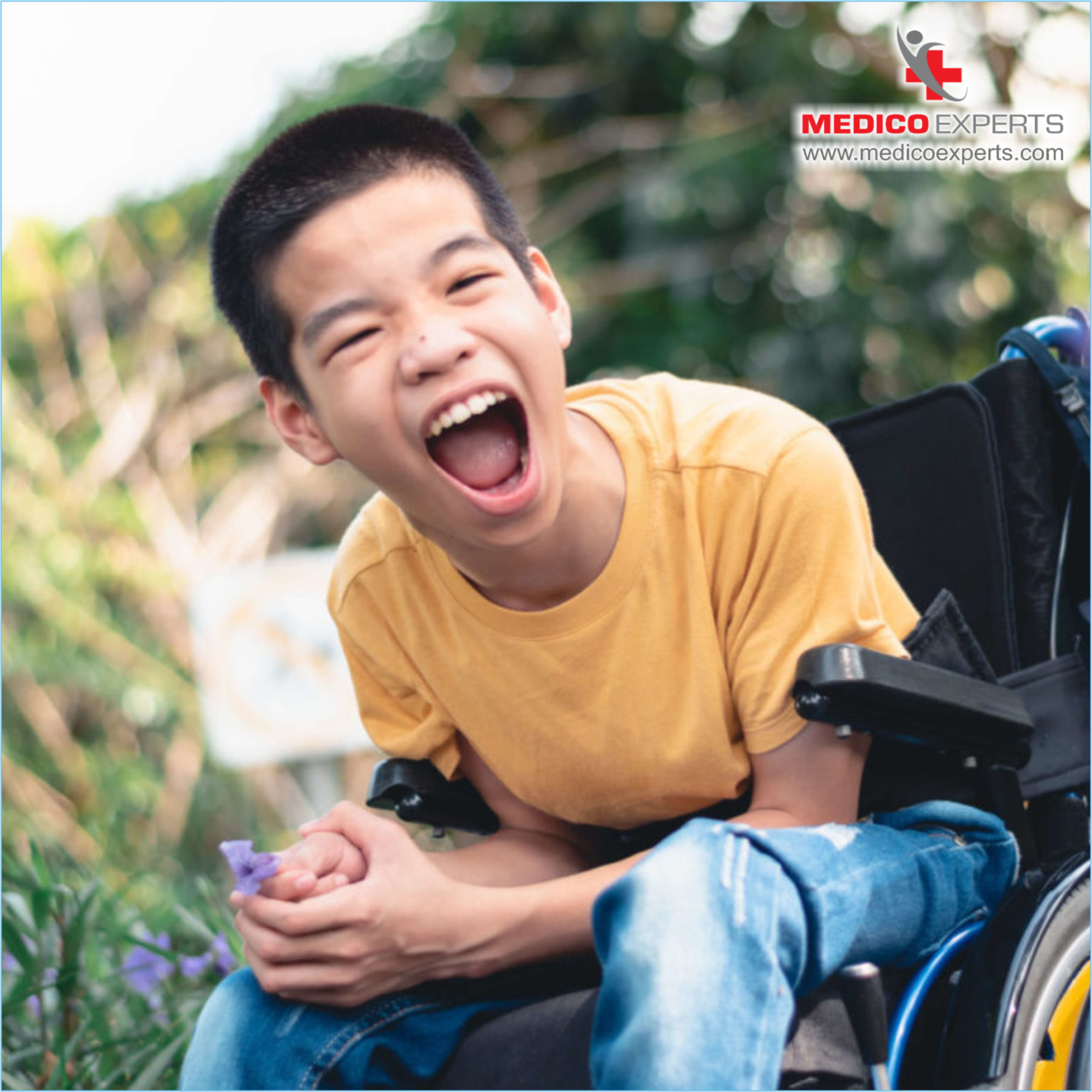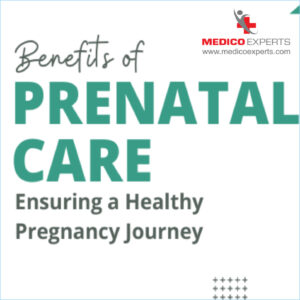What Parents Need to Know About Causes and Risk Factors of Cerebral Palsy?
Has your child been diagnosed with cerebral palsy, and you are thinking what could have caused it? You are not alone. Many parents are searching for answers about the factors that lead to this condition.
Cerebral palsy is often caused by factors that affect brain development before, during, or shortly after birth. These risk factors could include a shortage of oxygen during delivery, early birth, pregnancy-related infections, or genetic abnormalities.
Understanding the causes and risk factors is crucial for parents and would-be parents. For example, regular prenatal care, managing infections during pregnancy, and closely monitoring high-risk pregnancies can help reduce the likelihood of complications.
By familiarizing yourself with the possible causes and risk factors of cerebral palsy, you can make informed choices regarding your child’s care and therapies.
Let’s look at these factors and start working for a better future.


Key Takeaways
- Cerebral palsy is caused by faulty brain development or brain injury that occurs prior to, during, or soon after birth.
- Premature birth, low birth weight, pregnancy-related illnesses, and complications during labor and delivery are all important risk factors.
- Identifying the causes and risk factors early on can help reduce the severity of symptoms.
- By understanding these causes, parents and caregivers can make better-informed decisions regarding treatment and care.
- Prenatal and postnatal care can reduce risk factors, but cerebral palsy is not always prevented.
- MedicoExpert is a trusted healthcare organization that matches people with top doctors and facilities for comprehensive care.
What are the Causes of Cerebral Palsy?
Cerebral palsy happens when your baby’s brain doesn’t develop properly. This can occur before birth, during delivery, or shortly after. Sometimes, the exact cause isn’t clear, but understanding the possible reasons can help you better guide your child’s condition.
Most cases of cerebral palsy are linked to issues with brain development while your baby is still in the womb.
Here are some common causes:
- Reduced oxygen or blood flow to the brain (PVL): This can damage white matter in your baby’s brain, a condition called periventricular leukomalacia (PVL).
- Infections during pregnancy: If you experience infections like cytomegalovirus, rubella, chickenpox, or toxoplasmosis, your baby’s brain development might be affected.
- A stroke before birth: If your baby has bleeding in the brain or a blocked blood supply while in the womb, it can cause brain damage.
- Head injuries in the womb: Trauma to your baby’s head before birth can also affect brain development.
Yes, cerebral palsy can sometimes occur during delivery. If your baby’s brain doesn’t get enough oxygen, it can lead to damage. For example:
- Temporary lack of oxygen (asphyxiation): Difficult or prolonged labor can reduce oxygen flow to your baby’s brain.
- Head injuries during birth: Trauma to the head during delivery can also cause brain damage.
Cerebral palsy sometimes develops because of problems shortly after your baby is born. These might include:
- Brain infections: Infections like meningitis can cause brain damage.
- Serious head injuries: If your baby experiences head trauma from an accident, it may lead to brain damage.
- Lack of oxygen: Events like choking or near-drowning can stop your baby’s brain from getting enough oxygen.
- Very low blood sugar: If your baby’s blood sugar (hypoglycemia) drops dangerously low, it can harm their brain.
- A stroke after birth: This can also cause brain damage.
Understanding these causes can help you feel more informed and better prepared to explore care options for your child with cerebral palsy.
Before we move to the next segment, you can also check out the symptoms for your child in our comprehensive guide on the common signs and symptoms of cerebral palsy.
What are the Risk Factors for Cerebral Palsy?
Specific events or health difficulties can sometimes cause cerebral palsy during pregnancy, delivery, or in your child’s early years of life. Being aware of the risk factors allows you to stay informed and take steps to protect your child. Here’s what you need to know:
The way your labor and delivery progress, or events that happen immediately after birth, can also affect your baby’s chances of developing cerebral palsy.
- Complicated Labor and Delivery
If your baby experiences heart or breathing problems during delivery or right after birth, their risk may be higher.
- Seizures
If your infant experiences seizures in their early life, they may be at a higher risk of developing cerebral palsy later on.
Cerebral palsy can also arise after birth due to specific incidents or conditions:
- Infancy Risks
Your baby is particularly susceptible to events that could cause brain damage during their first few months.
- Preterm Birth or Low Birth Weight
If your baby was born early or with a low birth weight, the risk of complications remains higher during early childhood.
- Infections and Vaccinations
Skipping your baby’s vaccinations can leave them unprotected against serious infections that might cause brain damage. Keeping up with vaccinations is essential.
- Injuries
Accidents or insufficient supervision can result in brain injuries that heighten the risk of cerebral palsy. Implementing safety measures can help protect your child.
By understanding these risk factors, you can make informed choices and take proactive steps to ensure your child’s health.
What can you do to prevent Cerebral Palsy?
Cerebral palsy cannot always be avoided, but there are things you may take to reduce your risk. If you’re pregnant or intend to have a baby, here’s how to protect yourself and your child.
Keep your vaccinations up to date
Make sure you’re properly vaccinated, especially for infections like rubella. Getting vaccinated protects you against illnesses that could damage your baby. If feasible, take care of this before you become pregnant.

Focus on your health
Your health during pregnancy is critical. The healthier you are, the lesser your risks of contracting infections that could harm your baby. Eat a well-balanced diet, get enough relaxation, and care for yourself.

Get regular prenatal care
Visit your doctor frequently when pregnant. By getting prenatal care, you can avoid birth defects, infection, and low birth weight. Additionally, these visits help your doctor catch any potential issues early on.

Avoid hazardous drugs
If you’re pregnant, it’s important to avoid illegal drugs, alcohol, and tobacco. These substances can raise the risk of your baby developing cerebral palsy and other health concerns.

By following these guidelines, you can give your child the best opportunity for a healthy beginning. Remember, even small steps can make a significant difference.
Takeaway
Raising a child with cerebral palsy can feel overwhelming, especially when you’re managing the costs of their care. Understanding the typical causes and risk factors of cerebral palsy will help you to know whether medical negligence contributed to your child’s condition.
Taking action can help you explore financial and legal options to ease the burden so you can focus on what matters most for your child.
At MedicoExperts, we understand the challenges you’re facing. We’re here to guide you through the process. From understanding your rights to accessing financial assistance, we’ll support you every step of the way.
Contact us today for a free consultation. Take the first step toward securing the support and resources your family deserves. You don’t have to face this alone our compassionate team is here to help.
Book Your Free Consultation Today.

Frequently Asked Questions (FAQs):
Q1. What complications during pregnancy can affect your baby?
A. Complications like infections, high blood pressure, or lack of oxygen during delivery can increase risks for your baby. Make sure you’re attending regular check-ups with your doctor to monitor both your health and your baby’s development.
Q2. Could your child’s cerebral palsy (CP) be linked to genetics?
A. Sometimes, cerebral palsy results from inherited factors. See your doctor about it if the disorder runs in your family. To help you grasp the risks, they could suggest genetic counselling. At MedicoExperts, we’re here to guide you through the process and connect you with the right specialists.
Q3. Can infections during pregnancy harm your baby?
A. Yes, certain infections during pregnancy, like rubella or toxoplasmosis, can impact your baby’s health. These infections may lead to complications such as brain injuries or developmental issues. Discuss prenatal care and vaccination options with your doctor to protect you and your baby.
Q4. How can brain injuries impact your baby?
A. Brain injuries can happen before, during, or after birth and may affect your baby’s motor skills, movement, and development.
Q5. Should you worry about jaundice in your baby?
A. Jaundice is common in newborns and usually goes away on its own. However, severe or untreated jaundice can lead to complications like brain damage. If you notice yellowing of your baby’s skin or eyes, contact your doctor immediately.
- https://www.ninds.nih.gov/health-information/disorders/cerebral-palsy
- https://www.mayoclinic.org/diseases-conditions/cerebral-palsy/symptoms-causes/syc-20353999
- https://www.nichd.nih.gov/health/topics/cerebral-palsy/conditioninfo/causes
- https://www.nhs.uk/conditions/cerebral-palsy/causes/
- https://www.cerebralpalsyguide.com/cerebral-palsy/
- https://www.cerebralpalsyguide.com/cerebral-palsy/causes/
- https://www.nichd.nih.gov/health/topics/cerebral-palsy/conditioninfo/risk-factors
Next in Cerebral Palsy

Author Bio:
Dr. Khushbu Jain is a dedicated professional with a passion for advancing healthcare through cutting-edge treatments. She has a special interest in researching regenerative medicine and advanced treatment for diseases that are difficult to treat with conventional treatment options. Her deep understanding of these progressive treatments allows her to offer patients personalized and effective solutions for a variety of health concerns.
Content Medically Reviewed By MedicoExperts Editorial & Clinically Review Board



